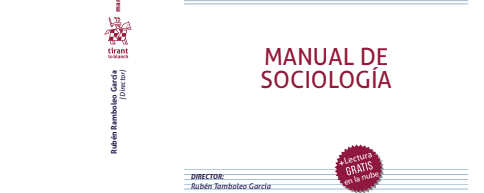In a heated debate on RT, pro-independence Catalan MP Carles Prats challenged the pro-unionist political scientist Ruben Tamboleo over the validity of Catalonia’s proclaimed split from Madrid, who in turn, stripped the region of its autonomy.
The main point of contention: their divergent views on the legitimacy of the October 1 referendum. Opponents of Catalan independence argue that because of Madrid declaring the vote illegal and the low voter turnout, Barcelona had no right to declare independence. The pro-Catalan faction, however, believes the vote remains valid, since hundreds of thousands of ballots were seized by armed police during the plebiscite.
Prats stated that the Catalan independence proclamation Friday was based on a referendum that was conducted despite a heavy government crackdown, during which police confiscated roughly 700,000 ballots which would have brought the official referendum turnout to as much as 56 percent, instead of the official 42 percent.
Long-desired step’: Catalan parliament declares independence from Spain
His opponent, political scientist Ruben Tamboleo, argued that because of the low turnout, the referendum is invalid as it fails to account for the larger part of the Catalan population. He insisted that Catalans should act based on the 1978 Spanish constitution.
“They have people in the region [who want] to remain in Spain. So they can’t go against half of the population,” Tamboleo said. Spaniards who did not vote in the referendum “don’t want to lose [their] history, common language and all the good things that are happening living together, working together.”
“Ninety percent of the Catalans supported the constitution when there was a referendum on the constitution 40 years ago. That is important because the constitution is our legal framework,” Tamboleo explained.
The political scientist stressed that pro-unionist supporters welcomed the central government’s decision to invoke Article 155 of the constitution to restore order in Catalonia.
“To use that article is perfectly normal,” Tamboleo said, pointing out that other countries have similar provisions in their national constitutions, especially in European states. “It is normal to restore the law and to restore the democracy.”
Rubén Tamboleo: “We need to keep control,” he said. “Right now, the Spanish government is working to restore the constitutional order in the region. And we have to protect half of the Catalans that want to keep their right to remain Spanish.”
Prats then jumped in, interrupting Tamboleo, who reasoned that the proclamation of independence was undemocratic.
“You don’t want people to express their own opinion… You tried to make it impossible even though we could do it. Fifty-six percent of the people participated, and 80 percent of the people decided ‘Yes’,” the Catalan MP said.
“You can’t say that it is not undemocratic to listen to the voice of the people.”
He then explained that following the referendum, the regional government tried its best to initiate dialogue with Madrid, but the government of Mariano Rajoy refused to listen to the Catalans. Now he is worried that Madrid will have no choice but to respond with force to preserve Spanish unity.
“We hope that the Spanish government will not use force this time,” Prats said. “The only party which is trying to create confusion, to create chaos here in Catalonia, is the Spanish government using the Spanish army here in Barcelona.”
The MP expressed hope that the European Union will intervene “in order to solve the situation in a democratic way.”
Read more
Spanish and Catalan flags are seen atop the Catalan regional government headquarters after the regional parliament declared independence from Spain in Barcelona, Spain, October 27, 2017 © Juan MedinaMadrid sacks Catalan government, snap elections scheduled for December 21
They then turned to the issue of big business staying or leaving Catalonia.
“The Spanish government has been pushing and pressing the Catalan companies to move out of our region, our country now,” Prats explained. “Even the Spanish King has been making calls to companies in order to move their headquarters to Madrid.”
Tamboleo immediately rejected Prats’ view, claiming that big business wants to leave on their own because the independence push has resulted in a lack of economic security in the region.
“The companies, the business are going to other parts of the country because there is no security with the law, with the procedures, with the future in the region,” Tamboleo said.
“The regional government, the vice president, was lying all the time. Yes, the regional government was lying to the people because they were saying that the companies are remaining there [in Catalonia]. And that is not happening now.”

